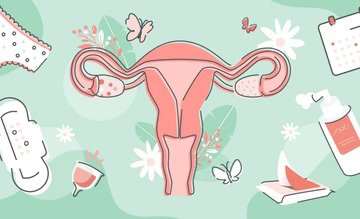Women need to take care of themselves during periods, mainly at this time they should pay more attention to their diet. During periods, one may feel a lot of weakness in the body, that is why only nutritious and healthy diet should be taken at this time, which along with providing better nutrition and balance the Hormones. Here are some of the best foods to eat during your period:
The body is effective in relieving pain. It is very important for hormones to be balanced during periods because there are many fluctuations in hormones during periods due to which one may have to face a lot of problems at times. Therefore, at such times, you should avoid fried market items like fast food or junk food, packed food or other items with excessive spices.
At such a time, you should also take dairy products carefully. It may be surprising to hear but taking dairy products like cheese or cream is not advised during periods because they contain arachidonic acid which causes many changes in the body during periods. Can cause bar cramps.
Diet during periods
You should keep your diet light during periods. Which includes nutrients like fiber and food containing oil, chilli and spices should be completely avoided. Consuming excessive caffeine during periods can also prove harmful.
Include in diet during periods
- Fruits and vegetables
Raw vegetables and fruits are rich in vitamin C and beta carotene, which help in balancing hormones during periods. Carrots, mangoes, sweet potatoes etc. for beta carotene. For Vitamin C, you can consume broccoli, sprouts and all types of citrus fruits.
- Whole grains:
Whole grains have high amounts of protein, fiber and vitamins. Due to which many nutrients are obtained during periods. Which helps during periods
- Dark chocolate
Dark chocolate is a good source of magnesium, which produces serotonin hormone in the body, which can cause instant mood lift during this period.
- Salmon
Salmon is the answer to all period troubles, it is full of omega-3 fatty acids, which work to relax your muscles and provide relief from pain. Salmon Omega 3 is found in sufficient quantity in walnuts, avocado, pumpkin, and flax seeds.
- Orange
Calcium and Vitamin D are found in abundance in oranges, which are capable of eliminating the symptoms of PMS. High levels of calcium can prove to be effective in reducing pain and relaxing the muscles.
- Leafy Greens:
Leafy vegetables like spinach, kale and Swiss chard are rich in iron, which can help replace iron lost during menstruation. Iron deficiency can lead to fatigue and low energy levels, so adding these green vegetables to your diet can help boost your energy during your period.
- Legumes:
Legumes like lentils, chickpeas and black beans are rich in fibre, protein and essential nutrients like iron and magnesium. These nutrients may help stabilize blood sugar levels and reduce bloating and mood swings associated with menstruation.
- Whole Grains:
Whole grains like quinoa, brown rice and oats are complex carbohydrates that provide sustained energy and help control blood sugar levels. Including whole grains in your diet can help prevent lack of energy and mood swings during your period.
- Water-rich foods:
Consuming water-rich foods like cucumber, watermelon and celery can help keep you hydrated during menstruation. Proper hydration is essential to maintain overall health and reduce symptoms such as swelling and water retention.
- Nuts and Seeds:
Nuts and seeds like almonds, walnuts and flaxseeds are rich in magnesium and omega-3 fatty acids, which may help reduce inflammation and menstrual symptoms like cramps and bloating. Sprinkle them on salad, yogurt or oatmeal for an extra nutritional boost.
- Berries:
Berries like strawberries, blueberries and raspberries are rich in antioxidants and vitamins that can help reduce inflammation and oxidative stress in the body. They are also low in calories and high in fiber, making them an excellent snack option during your period.
- Herbal Tea:
Herbal teas like ginger, chamomile and peppermint can help soothe menstrual cramps and promote relaxation. In particular, ginger tea has anti-inflammatory properties that can help reduce pain and discomfort during menstruation.
Conclusion:
Adding these nutrient-rich foods to your diet during menstruation can help maintain hormone balance, reduce inflammation, and ease normal menstrual symptoms. Additionally, listening to your body's signals and eating intuitively can help you identify what foods work best for you during this time of the month. Remember to prioritize self-care and nourish your body with nutritious, balanced meals to feel your best during your period.





